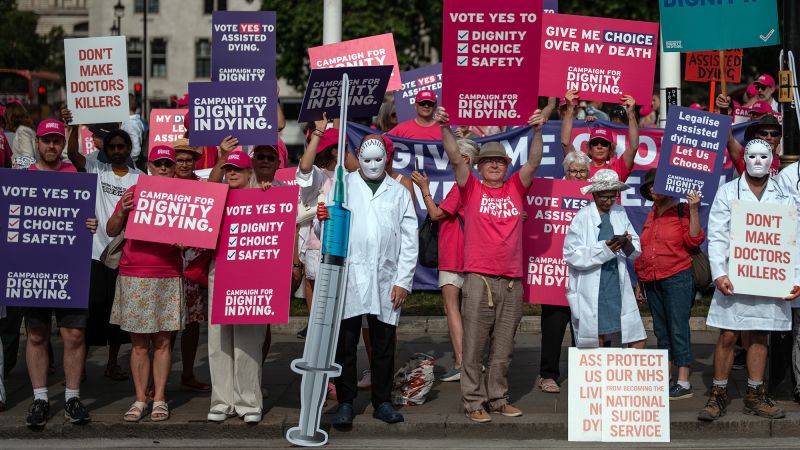Lawmakers in Britain have narrowly approved a bill to legalize assisted dying for terminally ill people, capping a fraught debate in Parliament and across the country that cut across political, religious and legal divides.
MPs passed the bill by 314 votes to 291, in their final say on the question. The bill – which has split lawmakers and sparked impassioned conversations with their constituents the breadth of Britain – will now move to the House of Lords for its final rounds of scrutiny.
Friday’s vote puts Britain firmly on track to join a small club of nations that have legalized the process, and one of the largest by population to allow it.
It allows people with a terminal condition and less than six months to live to take a substance to end their lives, as long as they are capable of making the decision themselves. Two doctors and a panel would need to sign off on the choice.
Canada, New Zealand, Spain and most of Australia allow assisted dying in some form, as do several US states, including Oregon, Washington and California.
Friday’s vote in Parliament coincided with a charged public debate about whether the state should be dictating the choices available to Britons in the final moments of their lives.
Proponents included Esther Rantzen, a BBC TV presenter with advanced lung cancer, who argued that the choice would save millions from unnecessary suffering.
“If we don’t vote to change the law today, what does that mean?,” asked Kim Leadbeater, the MP who introduced the bill last year. “It means we will have many more years of heartbreaking stories from terminally ill people and their families, of pain and trauma, suicide attempts, PTSD, lonely trips to (clinics in) Switzerland, police investigations.”
The option, she said, is “not a choice between living and dying: it is a choice for terminally ill people about how they die.”
But opponents have criticized the bill on religious and ethical grounds, and raised issues with a legislative process they accuse of being opaque.
Former British Prime Minister Gordon Brown argued that fixing Britain’s strained end-of-live care system should be prioritized, writing in a rare intervention in The Guardian that the bill “would privilege the legal right to assisted dying without guaranteeing anything approaching an equivalent right to high-quality palliative care for those close to death.”
Seriously ill people “need the health and social care system fixing first,” Labour MP Vicky Foxcroft said in Parliament Friday. “They want us as parliamentarians to assist them to live, not to die.”
Friday’s debate was concluded with a free vote, meaning that MPs were allowed to decide for or against the bill according to their conscience, and free from any party-line whipping.
The proposed bill is broadly in line with the Oregon model, and does not go as far as Switzerland, the Netherlands and Canada, which allow assisted death in cases of suffering, not just for terminally ill people. It differs from euthanasia, the process in which another person deliberately ends someone’s life to relieve suffering.
It is currently a crime to help somebody die in England and Wales, punishable by up to 14 years in prison. Performing euthanasia on a person, meanwhile, is considered murder or manslaughter.
